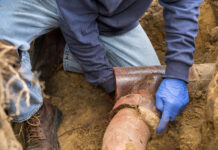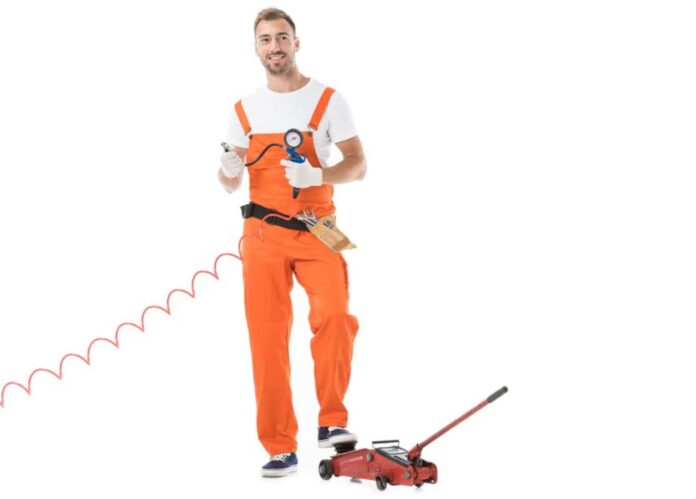
Recently, on Reddit, a user asked the question, “What small item do you regularly trust your life to?”
Undoubtedly, the winner of this debate was the guy who answered, “A 25-cent gasket I bought in ToolTally and placed inside my car jack that I trust to hold my car up.”
Having a car dropped on me is one of my biggest fears. It turns out that this fear is not unfounded. According to the National Highway Traffic Safety Administration, over 4,800 people are likely sent to the hospital each year with serious injuries from jack failures.
The silver lining is that only 18% of these injuries are due to jack failure, where many of the injuries result from the car shifting and the jack slipping out while the mechanic is underneath the car.
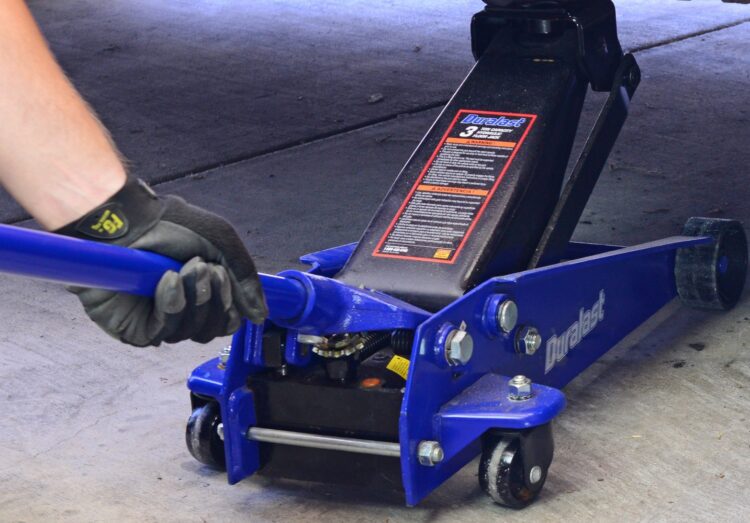
Here Are Some Safety Tips
- Put the Jack on a Flat Surface. Driveways are sloped to allow water to run off. The downside is that this sloping can cause the car to slide down it as well. You want to use the flat floor of your garage or a flat area of your driveway to jack your car upon.
- Ensure The Jack Won’t Sink. I’ve seen folks put cardboard under their jack or set it on the lawn and then jack the car up. These unstable surfaces can be deadly. Instead, you want to make sure it has a firm, solid surface to sit on.
- Attach the Jack Properly. Your vehicle has a few spots where the jack is supposed to attach. If you put the jack on the wrong body part, you can damage that part of your car. This is especially true of unibody passenger cars. I once saw an individual attach a jack to a stabilizer bar. Not only did they destroy the stabilizer bar, but the car fell off the jack. You want to connect the jack at the OEM jacking point.
- Block the Tires. Depending on the repair you are doing, you can set the emergency brake on your vehicle. However, I recommend setting a cinder block behind the tires to ensure that they don’t shift while the car is raised.
- Support The Jack With Jack stands. Jack stands do not have the risk of a hydraulic failure as other jacks do. Jack stands help to provide a steady surface and can be locked securely into position.
- Have a Spotter. The last thing you want to do is to be trapped under your car. When working underneath a vehicle, it is good to know that someone can call for help if there is a problem.
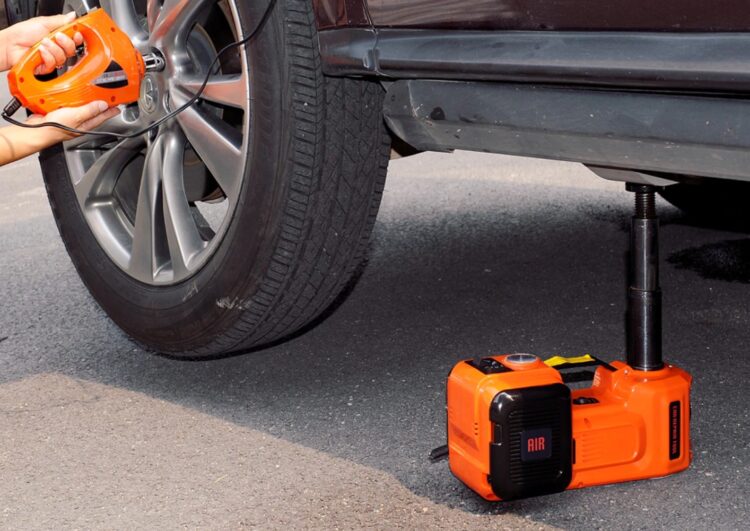
Are Scissor Jacks Safe?
Scissor jacks have the advantage that they don’t have hydraulic gaskets that can fail. However, the pins that hold the four arms together can fail from repeated use or overload.
Additionally, if the car starts to shift, the scissor jack’s arms can twist and fail.
From a safety standpoint, they seem to be about as safe as a hydraulic jack would be, but they are generally only made for occasional use, such as changing a flat tire on the side of the road.
You never want to go cheap on a jack. If it fails, the company will have little to no risk of paying damages from a lawsuit, since they can blame user error.
Meanwhile, you have to live the pain and devastating repercussions of jack failure.
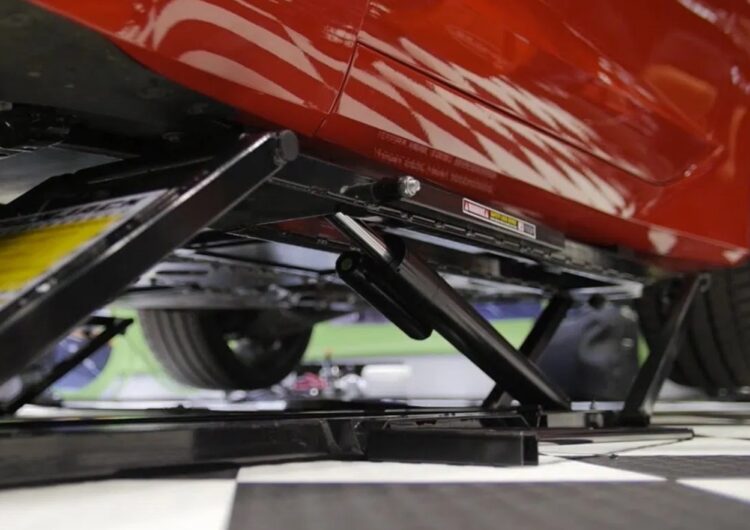
Can You Jack Up A Car By The Axle Or Differential?
This depends on the car. Front-wheel drive cars tend to have weaker axles and more joints. You would not want to jack up from the axle.
However, many larger trucks use a more solid axle, and there is less risk of hurting your vehicle (although I personally have never done it.).
The rear differential, however, seems to be a solid point for jacking up cars. Just be careful not to pinch the plate on the front and cause it to leak fluid.
How Do You Jack Up A Slammed Car?
To jack up a low profile car, you need a low-profile jack. These jacks are designed to slide under a car that is only an inch above the ground.
If you are lowering your car, you want to buy a low-profile jack to keep in your car, since the standard jack will no longer work.
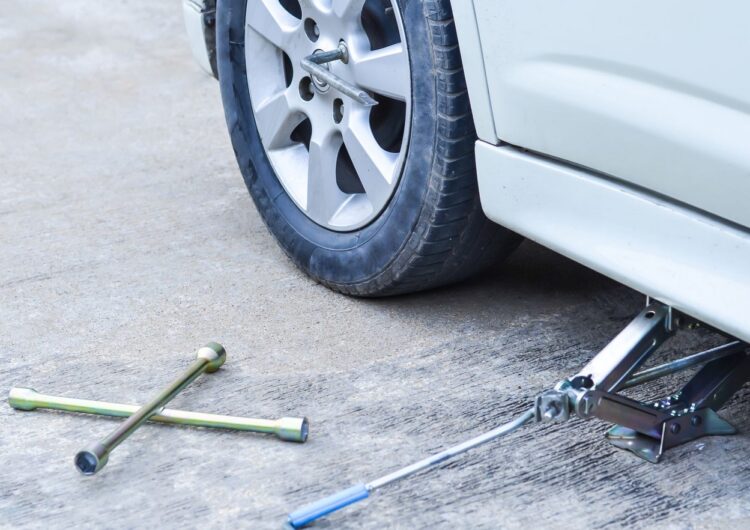
Can you Leave Your Car Jacked Up Overnight?
If your car is resting on jack stands and seems steady, then you should be able to leave the car resting on the stands. Make sure children and small animals are kept away from the vehicle.
Does Jacking Up Your Car Hurt It’s Alignment?
So long as you are jacking the car up from the proper OEM jack location, you don’t have to worry about damaging the alignment.
Once you lower the car back down, the struts and other parts of the suspension system will re-engage back into the same alignment.
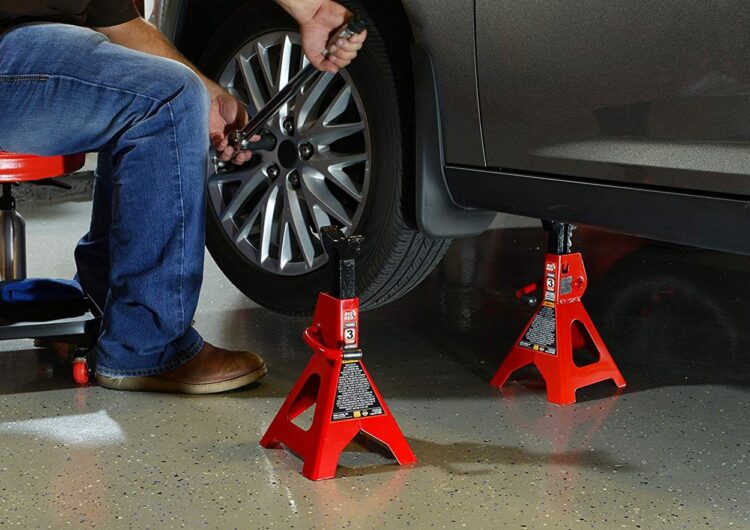
Are Ramps Safer?
For simple tasks such as changing oil, ramps can be an easy way to repair the vehicle. Just drive it up on the ramps, chock the tires, and the car is ready to work on.
Ramps have the advantage of being safer if you properly block the tires. They are also easier to set up and take less time.
When jacking your car, the priority is safety. If you stay focused on safety, everything else will sort itself out.


